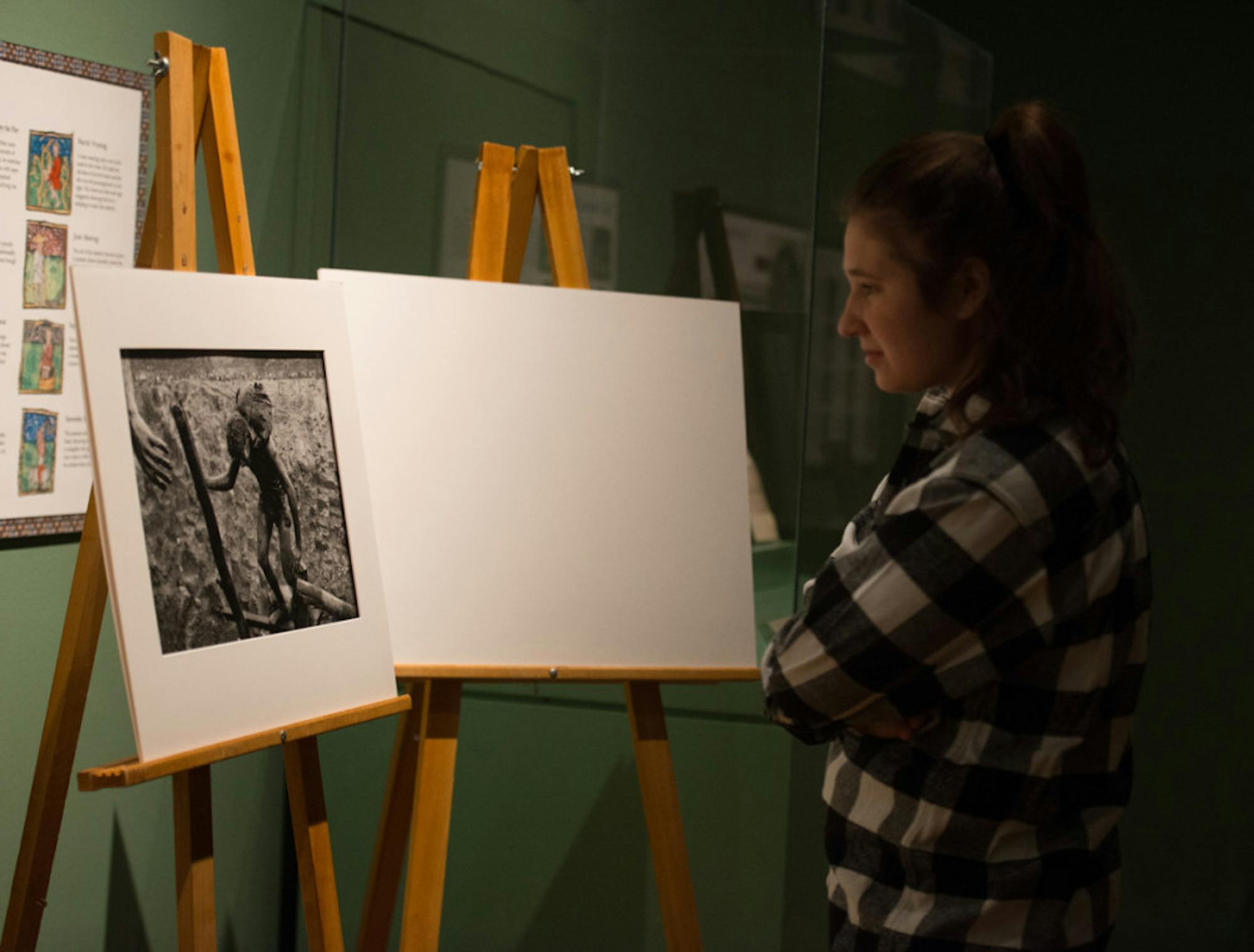Bridget Hoyt, curator of education at the Snite Museum of Art, led a discussion Friday of photos by social documentary photographer Sebastiao Salgado at the biweekly Labor Café meeting.
Two of Salgado’s photo series, of the gold mines of Serra Pelada in Brazil and the oil field fires in Kuwait, were selected and presented by Hoyt at the meeting, which the Higgins Labor Studies Program and the Center for Social Concerns (CSC) sponsored.
Daniel Graff, director of undergraduate studies for the history department, said by making something into art, the very nature of the thing is changed.
“The way that it’s shot and the way that it’s framed ennobles it," Graff said. "I think it’s interesting that there’s this sort of tension when films or photographs show us these things we think of as ugly when, even still, the act of making them into art seems to ennoble them.”
Junior accounting major Sebastian Morelos said the photo display raises questions about issues of ethics and exploitation.
“[This] would bring up the question of if he is exploiting the workers by putting [the pictures] in a gallery,” Morelos said.
Hoyt said one of the photographs was valued at approximately $10,000.
As the discussion focused on the ethical nature of Salgado's photographs and similar artists, graduate student Srishti Agnihotri said these types of pictures garner criticism from many people in other countries.
“I come from a country where there’s a lot of criticism of the West engaging in what people call ‘poverty porn,’" she said. "They go to these countries, and they glorify these images of poverty. But I think that when photographers take these pictures, they are telling their stories.”
The suffering of others has shaped the nature of all types of art, Agnihotri said, and problems arise when they are not shown.
“It’s just that when communities predominantly have suffering, if we see art as something that diverts from that, then we are depriving them of their stories and their art, and that has been a problem with history,” she said.
The Labor Café is open to all students, faculty and staff to discuss contemporary issues related to work and social justice. More information regarding these and other events can be found at the Higgins Labor Studies Program’s website.













